#Golden Compass
Text
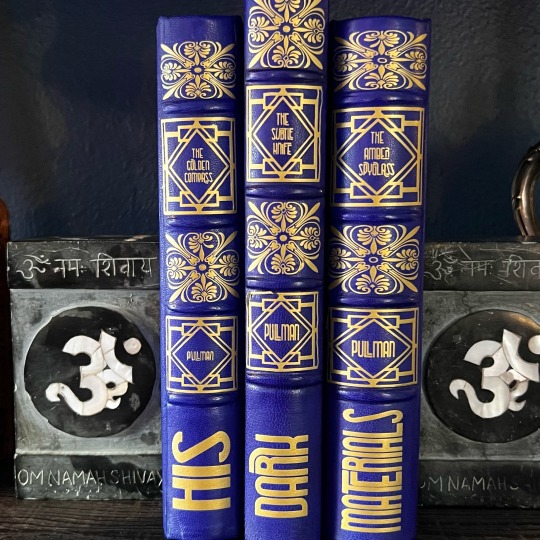

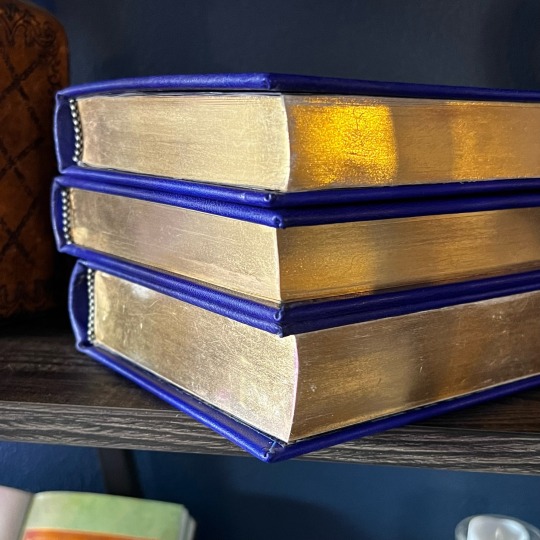
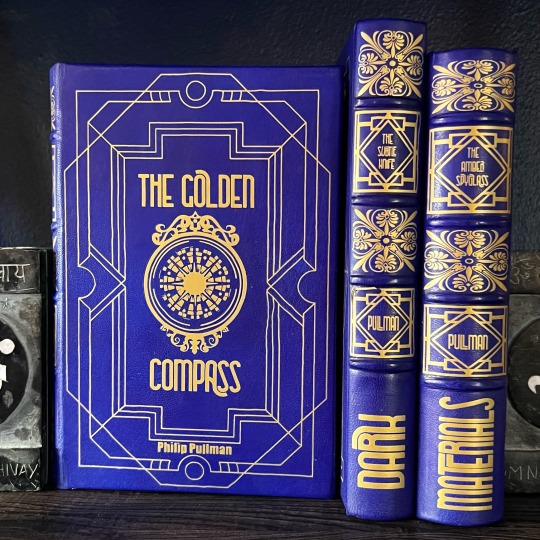
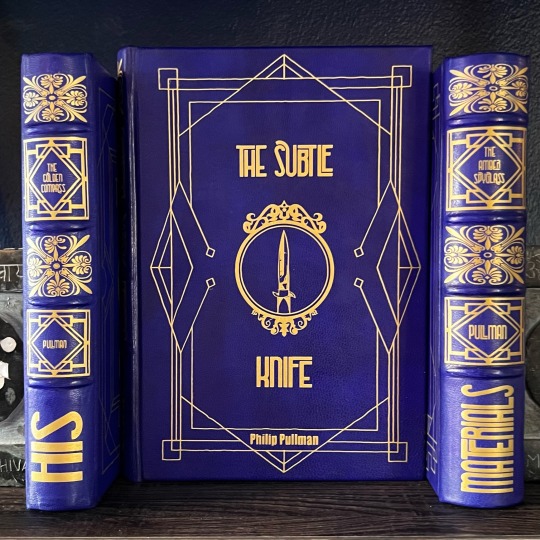
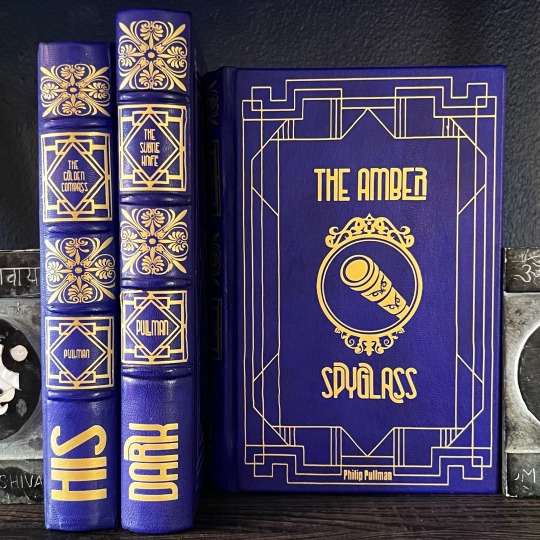

His Dark Materials series all rebound. All three books were purchased second hand and rebound in hand-dyed blue leather with gold foiled pages and gold embossing. The Golden Compass book is even signed by Philip Pullman himself!
#his dark materials#golden compass#subtle knife#amber spyglass#philip pullman#bookstagram#books and reading#bookbinding#books#bookaholic
834 notes
·
View notes
Text
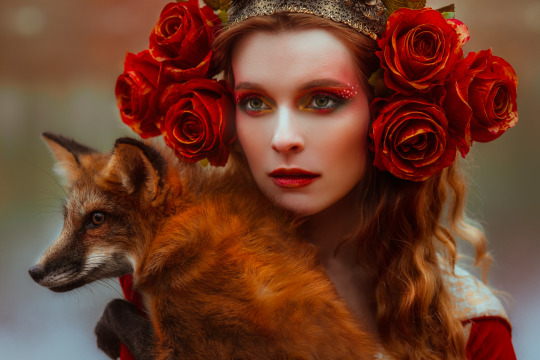
In the world of His Dark Materials, each person is born with a daemon: a manifestation of their soul that appears as an animal best matching who they truly are. Featuring 43 different categories and 800 total possibilities from insects to owls to seals to wild cats, you’re sure to find a unique result that fits your personality. What animal form will your daemon take?
the quiz consists of a primary quiz and a secondary quiz, make sure you follow the link in your first result to the secondary quiz!
2K notes
·
View notes
Text
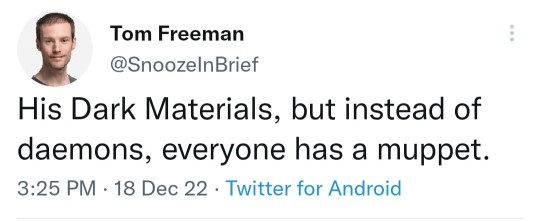
442 notes
·
View notes
Text


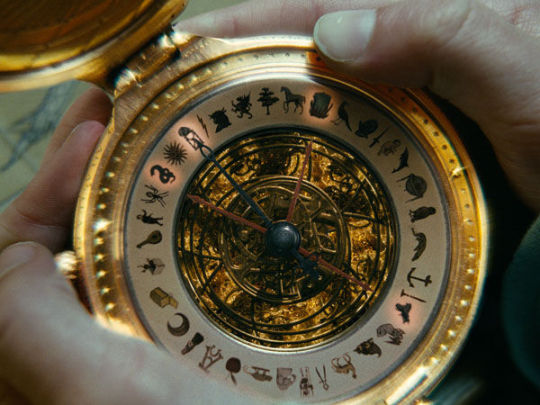


I don't know... I suspect I have a thing for adventures, mysteries and unknown
13 notes
·
View notes
Text
Last night I finally watched the finale of His Dark Materials, and of course it made me cry. I've read the final chapters of the Amber Spyglass so many times, and cried at each one. Was it perfect for me? No. But it never could be, because perfect for each individual reader is impossible, and an unfair thing to hope something would achieve. But it was excellent. And Dafne and Amir acted their hearts out with those lines between Lyra and Will when they're raging against the fate they're faced with, and with their promises to each other, and they broke my little heart with it. And finally hearing the "every atom of you and every atom of me..." speech... ooft that kicked me in the gut in all the right ways.
But this morning I happened to read the poem by Clare Harner that goes
Do not stand at my grave and weep
I am not there, I do not sleep
And I was hit suddenly by image after image invoked by each line, of each of them, old now and lying in bed (yes I want peace for them in the end. Some would want them to have a victorious or adventurous end but I think they deserve peace.) Pan pressing his face to Lyra's in a final embrace, and Kirjava pressing hers to Will's, and both humans whispering to their daemons that their atoms will find each other, just as they found each other when they were separated before, and Will telling Kirjava to keep Pan's atoms company while Will and Lyra find each other and look for them, and Lyra saying the same to Pan. They tell them that they know where the opening is, if they want to meet them there, but that they would find them either way. And Pan and Kirjava whisper an unneeded reminder to their humans: tell them stories.
And then a wisp of golden fire and Dust curls around a face in each world. Lyra sees her Death again, and they lead her as true as they did the first time. And Will meets his Death, and recognises them though its the first time they've met, but they lead him true, too.
And maybe Will and Lyra find each other in the land of the dead. I'm a romantic, and think even though they are so far apart and couldn't possibly know that the other was dying, they die in the same moment in their own worlds, whatever their lives have gone on to be. Because the universes kept them from being reunited in life, the least they could do is let them see each other again in death, and even with all the changes of their lives and the years they've lived, they know each other instantly. How could they not? And it's a feeling like finding something precious you have looked for every day of your life (because they have) and finally feeling the relief of finding it, and their ghosts are thin and cold and made of almost nothing. They should pass through each other, except they're made of the same kind of nothing. It doesn't feel like it did when they were in their bodies, but it's enough. Soon they'd be closer than they ever could be naturally in life. And they’re the closest they’ve been in so long. So for now, it's enough to hold each other, hand in thin, cold, ghostly hand.
They are at the jetty and the ferry man greets them, and at first he doesn't know them. He hasn't ferried anyone twice before, and he hasn't been hugged and greeted as an old friend, and Lyra wishes she could jokingly scold him for making her leave Pan last time but even now, decades later that wound is too fresh to come out as a joke, and she misses Pan even though she knows she'll be with him again soon, so she let's the chance for the joke go, and they talk to him the whole journey. They don't know if he's alive, or dead, or some other form that is just his, but he looks so genuinely cheery as they speak to him, in a way that his face looks unfamiliar with being, with so many years of his heavy duty weighing on him until now.
They tell him what happened last time they were here, of how they found their daemons like they said they would, and how the opening would let everyone he ferries back out into the world. He looks genuinely shocked at the news.
"Did no one tell you?" They ask.
"Who would tell me?" He replies.
So they tell him, that his job is not to escort people to a prison, but to deliver them back into the world to rejoin every living thing. That the people he ferries need only tell the harpies their stories: and stories, as long as they’re true, of what they saw in life, no matter how small or boring or painful, and to tell them the good news. And the weight lifted from him further, his back straightened and his face brightened, and as they stepped to the shore, he waved to them rather than regretfully returning to his collections as he had every other time, and they heard the echoes of him whispering the phrase they passed down the line last time they'd been there: "Tell them stories."
And no sooner has the sounds of the lap of his boat been eaten by the mist, but they are replaced by flutter of heavy wings.
Of Gracious Wings.
The voice that greeted them was familiar but different: still loud and bold, but it has lost its strained, cracked and painful sound. Her lips were pink instead of the red of caked, vomited blood, and her hair hung soft around her face. A diet of varied stories, even for just the years of Will and Lyra's life, exchanged for millennia of screeching cruelties in the ears of the dead, has clearly suited her, and the smell of putrefaction had faded entirely. She welcomed them, and other harpies gathered themselves around the little ghosts, as they had all been waiting to hear these tales most of all, and they will pass them on to the others, the ones that are away guiding the ghosts to their freedom, so that they can enjoy the tales too.
So Lyra and Will began at the beginning, though they knew that some of it had already been heard by their audience. They added to each other's stories, filling in details and perspectives. It wasn't a short story, and though they were eager to rejoin the world, they enjoyed the reminiscence of the triumphs, and even the pain of the losses and separations could not be skipped over, as they were all a part of their story and to avoid any part of it would be a disrespect to each other.
But then their story as each other know it finishes: their final clumsy kiss before closing the window between their worlds. Every word from then on is new, and they watch each others lips make the shapes of their tales, food for each other as much as for the harpies. The only shared touch point was every year, their shared moment of peace and closeness each Midsummer. They learned of each other's friends and families, loves and losses. Of Will's life with his mother and Mary, and Lyra's learning in St Sophia's and reconnecting with the alethiometer at long last. Of who they were leaving behind in their own worlds, who would mourn them, despite their promises that they were going to go on to be a part of in every world. And as they reached the end of their stories as they could be told; as they reach that very moment, sitting on the floor of the world of the dead, surrounded by harpies and holding each others hands, their words ran out as they just. Look at each other. And smile. Hand held in cold, thin, ghostly hand.
So they rose, and Gracious Wings escorted them personally to the window they had made so long ago now. They waited their turn, though the queue was constantly moving on eager ghostly feet, desperate to return to the world as were, to feel the sun’s rays on their face once more, before they become part of those rays.
They take a moment, hanging back as other ghosts pass through, to look back out across that other world’s horizon. With delight they find it’s changed for the better: the huge seed pod trees seem to be growing stronger and healthier, and though they only had a small view through the window, there are no signs of them dying off like they were before.
They whispered amongst themselves briefly about doing as Will’s father and Lee Scoresby and all those brave people that held their ghosts together to step out into the world to fight in Asriel’s last stand against Metatron. To hold their particles together long enough to return to the mulefa’s world, revisit the trees they knew, see that spot by the river where they held those little red fruits to each other’s lips.
“No,” says Will at length. “We’ve made Kirjava and Pan wait long enough. We’ve waited long enough, too.”
“Plus,” Lyra says, almost giddy, “Soon enough we’ll be part of that river and those berries and everything else too.”
So they step up to the edge of the window, and smell the air and feel the warmth of the sun with the last time on these faces.
Do not stand at my grave and weep.
I am not there. I do not sleep.
I am a thousand winds that blow.
I am the diamond glints on snow.
I am the sunlight on ripened grain.
I am the gentle autumn rain.
When you awaken in the morning's hush
I am the swift uplifting rush
Of quiet birds in circled flight.
I am the soft stars that shine at night.
Do not stand at my grave and cry –
I am not there. I did not die.
#his dark materials#hdm#northern lights#philip pullman#golden compass#lyra belacqua#lyra silvertongue#will parry#pantalaimon#hdm spoilers#fanfiction#i didnt actually mean to write fanfiction but i think i did#headcanon#do not stand by my grave and weep i am not there i do not sleep#kirjava#long post#fanfic#hdm fanfic
173 notes
·
View notes
Photo

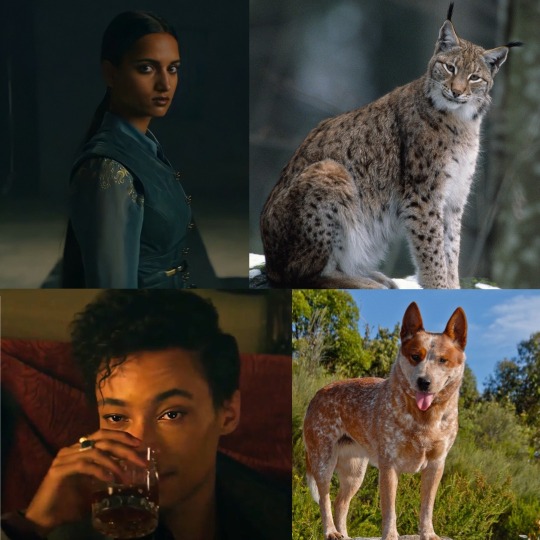

The Crows + Their Daemons, from a crossover of the Golden Compass/His Dark Materials and the Grishaverse. I tried to use the exact images I was referencing during the story so far, so sorry if the examples look weird. I also included in an edit the voice actors I picture in my head that would voice the daemons, though to me daemons have a strange voice that sounds as if it’s a blend of their human’s voice and their own. However that’s just me you are completely free to interpret them however you’d like.
It’s called “God I Want To Feel Again” on AO3 if you’d like to read it!
https://archiveofourown.org/works/47018494/chapters/118451386
(names/species under the cut)
Pictured, in order:
Kaz and his Beveren Rabbit (Oryctolagus cuniculus domesticus) Saya
headcannon voice actor for Saya - Cherami Leigh-Kuehn
Matthias and his Grey Wolf (Cainus lupus) Dimitri
headcannon voice actor for Dimitri - Chris Hackney
Inej and her Eurasian Lynx (Lynx lynx) Shanti
headcannon voice actor for Shanti - Laura Bailey
Jesper and his Australian Cattle Dog (Cainus familliaris) Clementine
headcannon voice actor for Clem - Allegra Clarke
Wylan and his Black Footed Ferret (Mustela nigripes) Sievert
headcannon voice actor for Sievert - Matt Mercer
Nina and her Red-Tailed Hawk (Buteo jamaicensis) Heathcliffe
headcannon voice actor for Heathcliffe - Patrick Seitz
#six of crows#soc#shadow and bone#sab#fanfic#fanfiction#six of crows fanfic#kazzle dazzle#kaz brekker#nina zenik#matthias helvar#wylan van eck#jesper fahey#inej gahfas#golden compass#inspired by golden compass#I did a thing#please come read it#ao3 link#ao3 fanfic#ao3
60 notes
·
View notes
Text
Ok but imagine if Ketterdam was actually just the shifty side of Lyra’s Oxford.
Lyra as a Crow is something I could definitely imagine. She would fit right in with those guys. Maybe she and Jesper met at university and she just kinda followed him to make sure he’s ok.
Adult Lyra from right before Secret Commonwealth mind you.
#his dark materials#shadow and bone#the golden compass#golden compass#six of crows#lyra silvertongue#lyra belacqua#jesper fahey
27 notes
·
View notes
Text
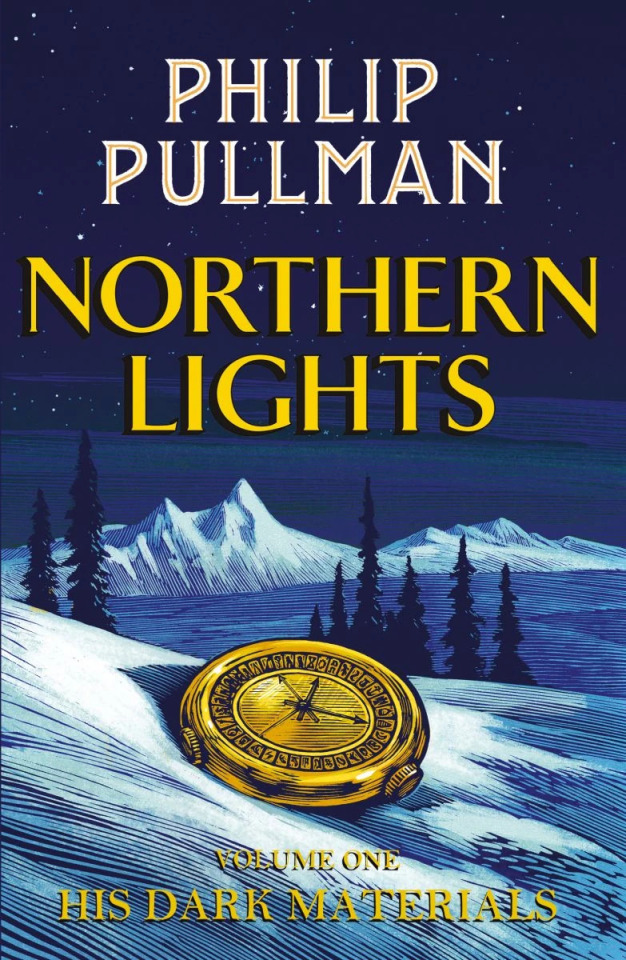
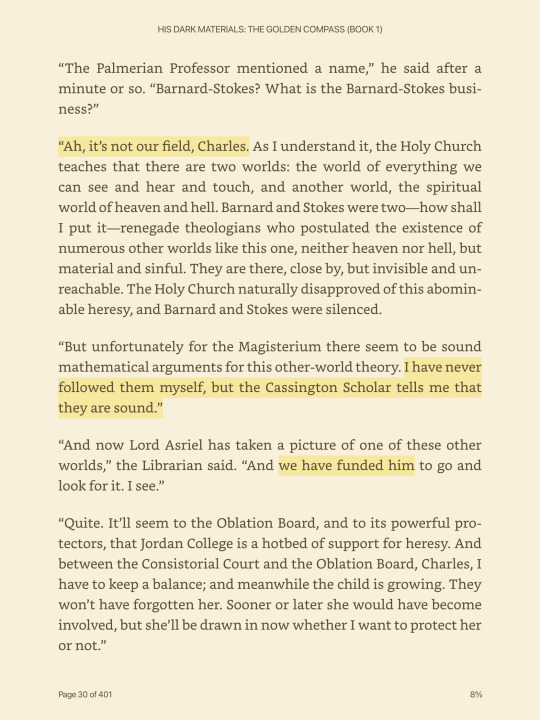
When I was (I think?) eleven, I found a copy of the first book in Philip Pullman's His Dark Materials series (Northern Lights). It was in my English teacher's personal classroom library. She immediately let me borrow it, because she was always trying to encourage us to read.
And this? The passage above? Was so exciting to me as a kiddo.
Why? At that age, I wasn't quite in the teenaged "I know everything" mode. I did have the vague idea that smart people went their own way and didn't listen to anyone, though.
Of course, I was a kid, and well-aware of my own limitations. Still, I guess growing up in the 1990s, individuality got pushed a lot, and with it, self-sufficiency. Actual smart people, I thought as a child, could handle things on their own right?
But here? In this book, you've got a portrayal of super-serious academic adults listening to each other. The main speaker in the passage is a college president discussing funding. He's a smart guy. The matter at hand involves other universes and physics and lots of cool stuff like that. He's seen a bit about it, but doesn't understand it in its entirety.
The point, though? He's perfectly willing to admit the matter at hand isn't his field. He trusts his colleagues understand it, and he listens to them about it. Unfortunately, the matter at hand is interdimensional heresy, but he's choosing to place his trust in the experts anyways.
Of course, nowadays, we live in a world where everyone wants to "do their own research" on YouTube. It sounds good, of course, and it jives with what a lot of us learned growing up. Skepticism, lack of trust for authority, etc. I'm not even saying that can't be healthy.
It's just that experts exist for a reason. We have them so that we can listen to them. I know we shouldn't consume anything uncritically, but part of critical thinking involves looking to those who already know more.
It seems like with the internet having wrapped its gossamer claws around civilization, more and more people have stopped doing that, for better or worse. Anyways, I hunted down this passage again, on the Kindle copy, because this was on my mind.
#hdm#his dark materials#jordan college#golden compass#the golden compass#northern lights#books#reading#eliza.txt#eliza reads#not sure what to tag this#it doesn't fit much with witchblr#hdm spoilers#i guess#from page 30#hahaha
50 notes
·
View notes
Text
So I've seen a lot of articles about Henry Cavill circling the web, and it seems that Netflix is doing their hardest to make him the enemy. Like, he wouldn't work with them, he argues with the writers, blah blah blah.
But reading the articles, the only thing Cavill did was insist that the writers stay true to the source material, both the books and the games. You know, the source material that is so popular it almost has a cult following?
Everyone knows when Netflix or some other site stray from the source material to make their own stuff, that show gets bad.
*side-eyes Percy Jackson, Game of Thrones, Eragon, The Golden Compass, ect...*
So let's be clear, Cavill is trying to save the Witcher. Let's not think otherwise.
89 notes
·
View notes
Text
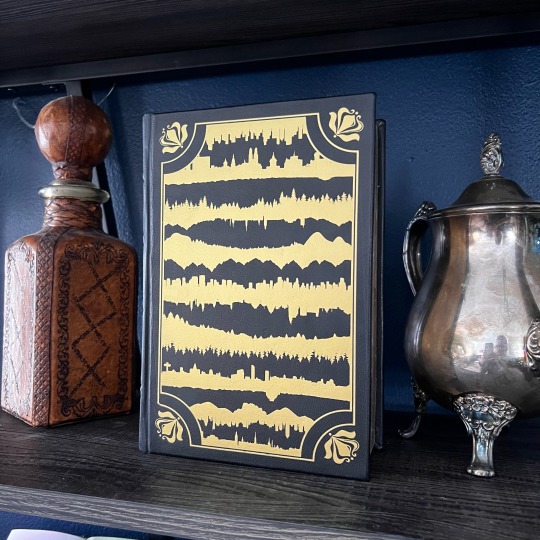
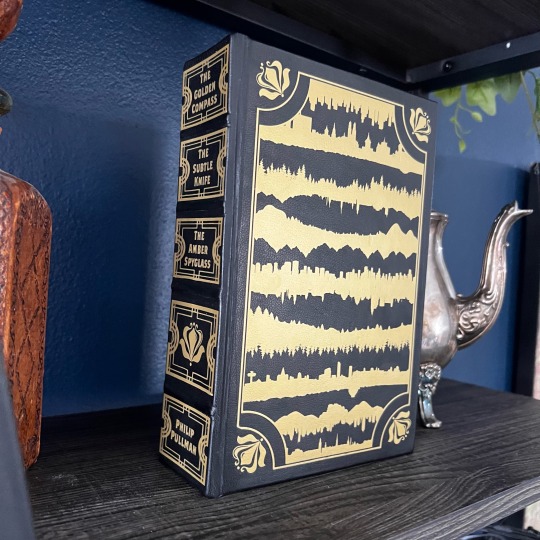
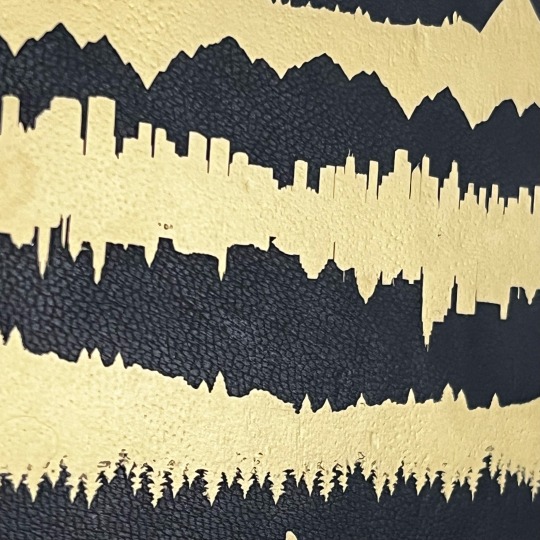

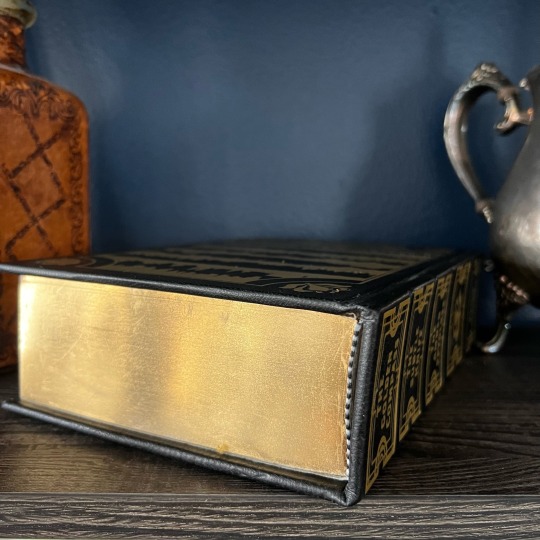
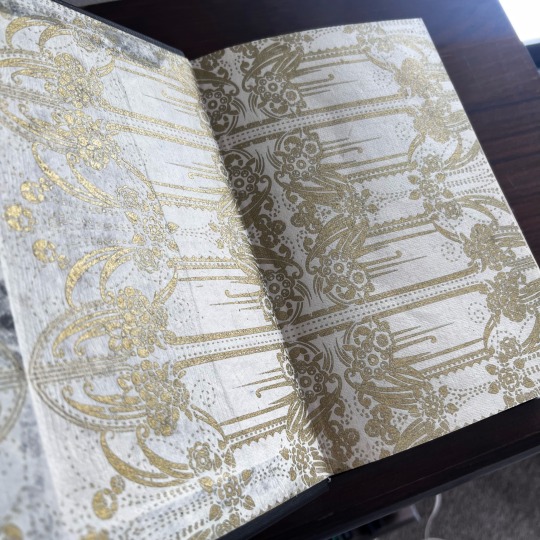

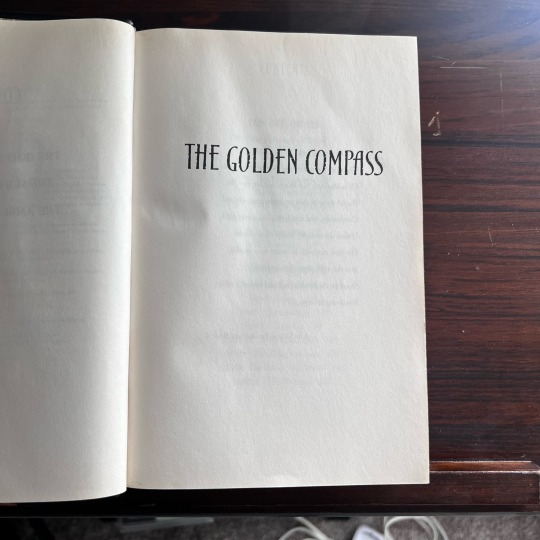
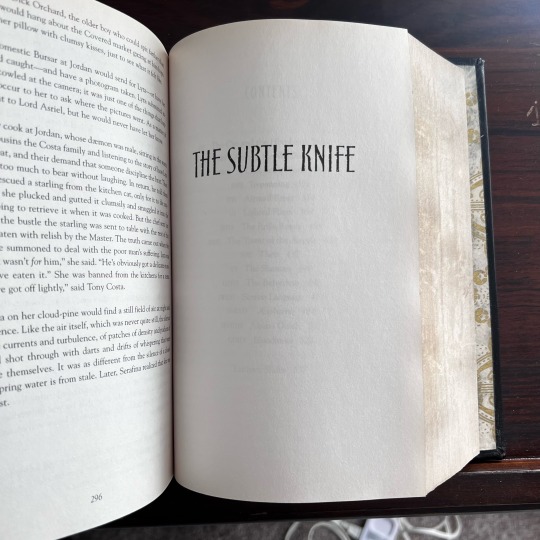
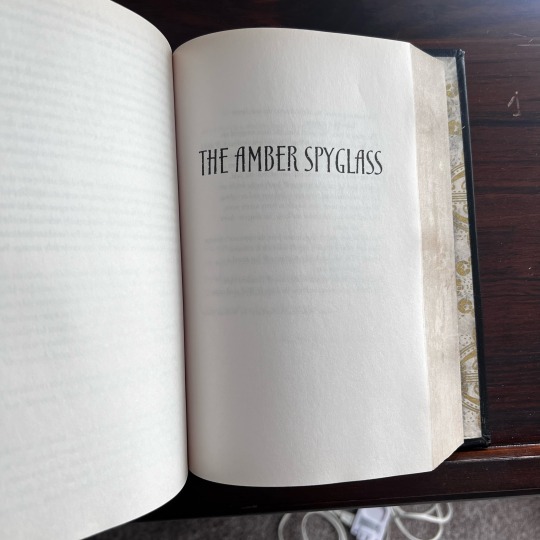
His Dark Materials omnibus. Originally paperback, I’ve rebound it with the hardcover treatment it deserves. This book is all three of the His Dark Materials series books in one. I designed the cover to be reminiscent of the title intro of the tv show Adaptation of the series where it shows all of the worlds sandwiched on top of each other. Now available on my Etsy shop at the link in my bio.
#his dark materials#golden compass#subtle knife#amber spyglass#philip pullman#bookshelf#bookish#bookaholic#bookbinding
126 notes
·
View notes
Text
Using the Alethiometer as a Tool of Divination
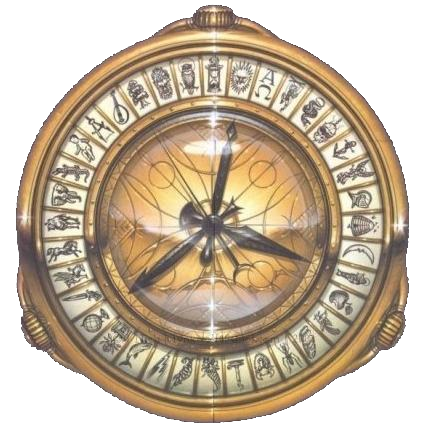
About the Alethiometer
The Alethiometer is a divinatory tool from Phillip Pullman's His Dark Materials series. The word 'alethiometer' is a compound of Greek root aletheia- (truth) and suffix -meter (measure), literally meaning 'truth measure'. It resembles a compass or pocket-watch in appearance, with four needle-like hands anchored to the center and a golden casing -- giving rise to its alternative name, The Golden Compass. The Alethiometer has thirty six symbols painted around the rim of the dial, each with meanings on multiple different levels (referred to by Lyra in the book as a 'ladder' that one had to travel up and down) that are contextually and subjectively dependent.
To use it, an Alethiometrist uses the dials on the sides of the device to move three of the four hands to point at three symbols representing the question they wish to ask. The Alethiometrist must hold this question in their mind and enter a loose, almost meditative state, during which the fourth dial shifts from symbol to symbol to indicate the answer. The querant must not only note which symbols the needle stops at and the order it does so, but also how many times it may have stopped at the same symbol, which could (but not always!) indicate which 'rung' of the 'ladder' the meaning may be found at. The symbols must then be taken together as a whole to translate and interpret the full meaning. The Alethiometer moves quickly, and so the Alethiometrist must be quick-witted and pay close attention to what it is trying to say lest they miss parts of the answer.
The Alethiometer was invented in Lyra Silvertongue's world in the 17th century by Pavel Khunrath, an experimental theologian who had originally intended to use it for astrological purposes, but expanded his research once he realized the device could answer questions beyond those dealing with the zodiac. In much the same way people of our world use tools such as tarot cards and runes, the Alethiometer was used to 'learn the truth' via communication with Dust, the elementary particle responsible for the consciousness of sentient species across the multiverse. Only six of these devices were ever created, and each of them had a somewhat unique appearance beyond the common resemblance to a compass.

Using the Alethiometer
As with any divinatory tool, reading and interpreting an Alethiometer is a deeply personal process that requires no small amount of intuition. It is for this reason that learning the symbols must go beyond mere rote memorization. Each of the 36 symbols on the dial has a primary 'surface' denotation and multiple, more abstract subsidiary connotations. Similar to tarot cards, each symbol can also have a multitude of different meanings beyond those that are commonly held due to the Alethiometrist's personal beliefs, views, culture, and life experiences. No symbolic meaning is universal! The Alethiometer may add to the multiplicity of the symbols by revealing new meanings to the querant relevant to the question at hand.
Additionally, Alethiometrists should look in to academic topics such as the study of semiotics (the study of signs and symbols and their use or interpretations), lexical semantics (the study of word meanings and word relations), and pragmatics (the study of how context contributes to meaning), especially in linguistic, anthropological, and sociological contexts. By combining these epistemologies, an Alethiometrist will have a firm foundation upon which to expand their knowledge and understanding not only of the symbols and meanings of the device itself, but how they might fit together in a syncretic and holistic manner.
Using an Alethiometer is a co-constructive exercise between yourself and the device. When posing a question to the Alethiometer, one should be calm, relaxed, loose in both body and mind, and open to whatever answers will be revealed to you. Remember: It can only the truth, but, depending on the question and context, your device may omit certain details or present information in an alternative light, and so each answer should be carefully examined and alternative interpretations should be considered. Discernment and the ability to read between the lines is important when using an Alethiometer. The Alethiometer is also sensitive to the moods of its reader and may become reluctant to answer questions when you aren't in the right state of mind, especially when it knows you might not like the answer it has to offer.
As with any divination practice, you should always keep a detailed journal to record your observations and take notes upon any impressions you get from your Alethiometer during readings. With patience and practice, reading the Alethiometer will become quicker and easier as you become familiar with your device's individual personality and moods and learn how to intuit the answers to your questions.
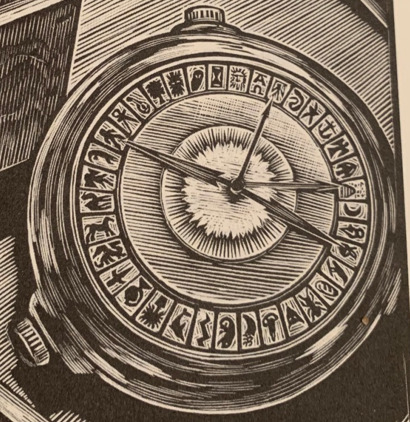
Alethiometer Simulacra:
Unfortunately, we do not have access to Lyra's world and thus do not have access to any of the Alethiometers that exist there there. Unless you have thousands of dollars to spare to commission a custom Alethiometer from a jeweler or watchmaker, or are able to buy one of the Limited Edition replicas of the 2007 film version produced by the Noble Collection that occasionally appear for resale online, access to the physical Alethiometers of our world is similarly restricted.
Luckily, I have found a handful of working substitutes in the form of web-based apps, computer programs, phone apps, and other alternatives. Any of these Alethiometers are viable to use, though some might work better for you than others. In addition to links, I've included my own notes and thoughts on each below.
The Emojicompass/The Emoji Alethiometer (Web & ios App)
The Emojicompass has to be my favorite Alethiometer of the bunch, mainly due to its charming presentation (I mean, come on, it uses emojis) and the inclusion of three dials/needles for user input. When moving your dials by click-and-drag to each symbol, a brief blurb will pop up to remind you of its meaning(s). Each answer returns three symbols, and will list one of the three associated meanings included with the app (which may be a bane or a boon depending on your reading style). It can also be accessed through mobile internet browsers, meaning Android users can also make use of it through bookmarking it and accessing it through said mobile browser, or adding the webpage to their home screens.
This is the version I personally use the most. The use of emojis as substitutes for the symbols upon the dial further contributes to the technomagickal nature of this particular iteration, which I think is particularly fitting. Because it exists as an app on my phone, it travels everywhere with me like a real Alethiometer would, and I feel more 'bonded' to it than any of the other versions on this list.
The NeonAvis Alethiometer (Windows & MacOS & Linux)
Retrieved via Wayback Machine from a site last logged in 2008, the NeonAvis Alethiometer is possibly the oldest Alethiometer on the list. The hands are moved by clicking and dragging the dials, and the question is posed by clicking the center of the compass. Each answer returns a whopping six symbols, and lists one of the meanings included with the app. This particular version is my second favorite because it actually gives you the ability to edit the meanings of each symbol yourself (with each symbol having up to six meanings). You can increase and decrease the window size using +/-. This version also has an Italian translation.
Because this version had to be recovered with Wayback and it took a rather considerable effort to download it, I have decided to host a copy of it myself and others via Google Drive, which is linked above. Along with the three OS versions, I have also managed to retrieve an Italian translation of the app as well as the source code. The creator of this app, Wendell M Jr. (aka NeonAvis), has listed it as freeware and open source, so if anyone has the knowledge to tinker with it, you are open to do so.
Note: If you try to add more than six meanings to a symbol in the .txt file containing said meanings, the program will read it as corrupt and stop working properly. Resetting the meanings file to default returns it to proper operation.
The Artemis-Beta Alethiometer (Windows & Mac OS)
This version of the Alethiometer has a very simple presentation compared to others on this list but is no less effective. It too has three dials/needles for user input, but requires a scroll-wheel on a mouse to move the dials. Laptop users may run into the issues here; I managed to get it to work by pinching my fingers in the traditional 'zoom in' gesture. This version moves very quickly and requires you to pay close attention to the fourth needle. Each answer returns three symbols, but offers no meanings, leaving it up to the reader to discern and interpret the level of meaning for each symbol.
Because of this, I feel that this version is actually the closest simulation of a real Alethiometer.
Alethiometer: Magical Oracle/The Magical Oracle Alethiometer (Android App)
The Alethiometer: Magical Oracle app features a 3D rendered Golden Compass clearly based upon the BBC show's version. It is my least favorite of the apps because of two reasons: there is only one dial/needle for user input, severely limiting the questions you can ask, and the app itself never seems to remember any settings customization, meaning you have to reset it to your preferred specifications each time you open it. However, each answer returns five symbols, and will list one of the three associated meanings included in the app. It also includes a meanings glossary within the app menu that you can consult. I am unsure if there is an iOS version.
The Chartomancy Alethiometer (Gyromancy-based)
This iteration is a printable PDF adapted for gyromancy-based chartomancy, though I suppose it could just as easily be used as a pendulum board. It's pretty straightforward to use -- you spin a top and take note of where it comes to rest. What I like most about this one, however, is the helpful journal/interpretation template the author has included for recording your questions & answers, which also encourages you to think about alternative meanings to the answer you've been given. They also include an extensive personal glossary of interpretations of each symbol, which is an excellent example of an Alethiometrist discovering new meanings beyond the few we were provided with in His Dark Materials.
The 3d6 Alethiometer System (Dice-based)
I kind've adore this version mainly due to the clever usage of the dice in place of a watch-like object with hands and symbols. Two of the dice give you the number corresponding to a specific symbol, and the (optional) third gives you the meaning. While it isn't exactly a 'traditional' Alethiometer, it could work just as well, as you still have to hold your question in your mind while rolling the dice to divine your answer. The linked post also includes three or more levels of meanings for each symbol, with some meanings added or tweaked by the author. Major kudos to @hillbillyoracle for coming up with it!
The Alethiometer Oracle Cards by Eva Deverell (Printable Oracle Deck)
Finally, we come to the Alethiometer Oracle Cards. The author provides a link to download a printable deck of 36 cards based upon the symbols of the Alethiometer (it's advised you print these off on thicker paper like cardstock) as well as a custom deck box. The deck can then be consulted as a traditional oracle deck. The author also helpfully provides a few different ways to help memorize the symbols and their meanings. Nevertheless, despite my personal feelings, this iteration could still prove useful to some aspiring Alethiometrists.
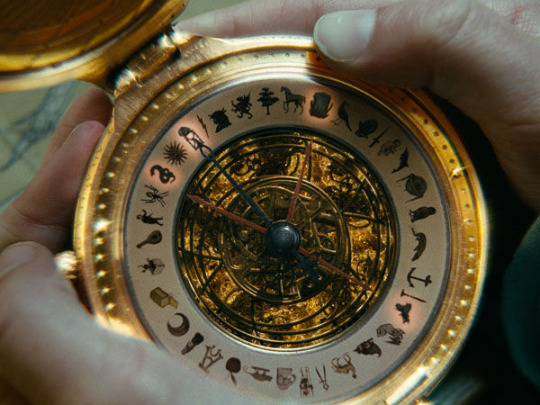
Symbol Meanings:
Here are the 36 symbols of the Alethiometer and the meanings they are canonically associated with, according to the books and material provided by the author and publisher, and are unfortunately very Western and Christian-centric, mainly due to the subject nature of the books in question. Please remember that these are meant only to be starting points for you in your journey as an Alethiometrist. As I explained above, everyone's understanding of the meanings of each symbol is contextual and subjective, and no two Alethiometrists will interpret the symbols the same exact way.
Hourglass - Time, Death, change ...
Sun - Day, Authority, truth ...
Alpha and Omega - Finality, Process, inevitability ...
Marionette - Obedience, Submission, grace ...
Serpent - Evil, Guile, natural wisdom ...
Cauldron (crucible) - Alchemy, Craft, achieved wisdom ...
Anchor - Hope, Steadfastness, prevention ...
Angel - Messages, hierarchy, disobedience…
Helmet - War, Protection, narrow vision ...
Beehive - Productive work, Sweetness, light ...
Moon - Chastity, Mystery, the uncanny ...
Madonna - Motherhood, The feminine, worship ...
Apple - Sin, Knowledge, vanity ...
Bird - The soul (the dæmon), Spring, marriage ...
Bread - Nourishment, Christ, sacrifice ...
Ant - Mechanical work, Diligence, tedium ...
Bull - Earth, Power, honesty ...
Candle - Fire, Faith, learning ...
Cornucopia - Wealth, Autumn, hospitality ...
Chameleon - Air, Greed, patience ...
Thunderbolt - Inspiration, Fate, chance ...
Dolphin - Water, Resurrection, succor ...
Walled garden - Nature, Innocence, order ...
Globe - Politics, Sovereignty, fame ...
Sword - Justice, Fortitude, the Church ...
Griffin - Treasure, Watchfulness, courage ...
Horse - Europe, Journeys, fidelity ...
Camel - Asia, Summer, perseverance ...
Elephant - Africa, Charity, continence ...
Crocodile (caiman) - America, Rapacity, enterprise ...
Baby - The future, Malleability, helplessness ...
Compass - Measurement, Mathematics, science ...
Lute - Poetry, Rhetoric, philosophy ...
Tree - Firmness, Shelter, fertility ...
Wild man - Wild man, The masculine, lust ...
Owl - Night, Winter, fear ...
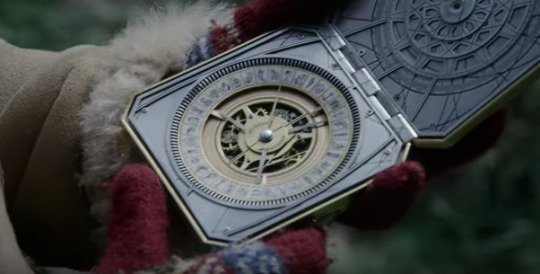
References:
"Definitions of Symbols of the Alethiometer." Archived by Wayback Machine. 20 March 2015. [https://web.archive.org/web/20150320073134/http://www.randomhouse.com/features/pullman/materials/definitions.php] Accessed 24 December 2022.
"History of the Alethiometer." Archived by Wayback Machine. 20 March 2015. [https://web.archive.org/web/20150320072443/http://www.randomhouse.com/features/pullman/materials/history.php] Accessed 24 December 2022.
"How to Read the Alethiometer." Archived by Wayback Machine. 20 March 2015. [https://web.archive.org/web/20150320072448/http://www.randomhouse.com/features/pullman/materials/materials.php]. Accessed 24 December 2022.
Pullman, Phillip. The Golden Compass. Alfred A. Knopf Books. 1995.
Pullman, Phillip. The Subtle Knife. Alfred A. Knopf Books. 1997.
Pullman, Phillip. The Amber Spyglass. Alfred A. Knopf Books. 2000.
#alethiometer#golden compass#hdm#divination#witchblr#his dark materials#pop culture magick#pop culture magic#tech magick#oracle#witchcraft
82 notes
·
View notes
Text
Okay but imagine if someone's daemon settled as elephant or something like that
#his dark materials#season 3#hdm s3#hbo#bbc#lyra silvertongue#will parry#lee scoresby#john parry#marisa coulter#asriel belacqua#lyra belacqua#serafina pekkala#golden compass#the amber spyglass#philip pullman
61 notes
·
View notes
Text
You know what all of these movies may have been wildly unpopular, but these 2000s kids in in mortal danger movies slapped.
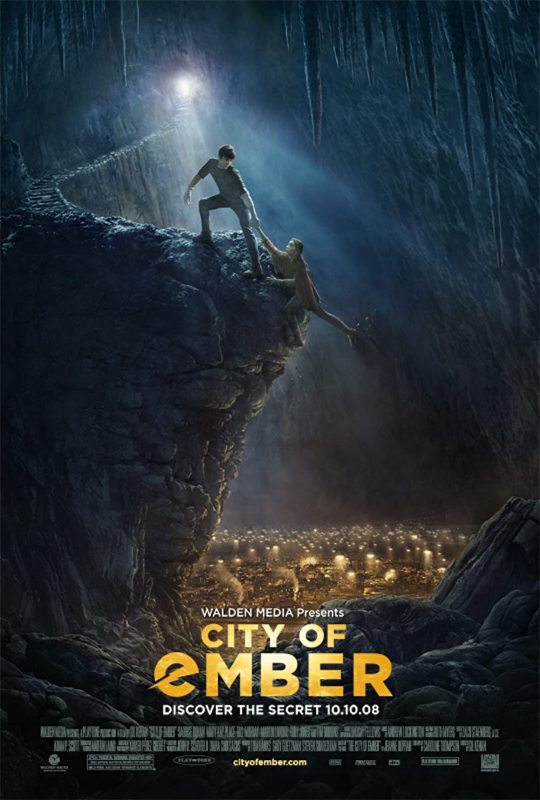

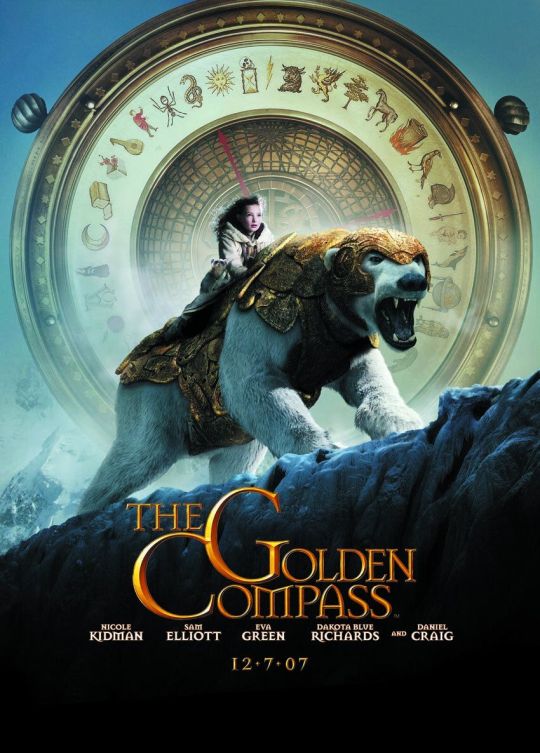
City of ember 2008
A series of unfortunate events 2004
The golden compass 2007
#his dark materials#a series of unfortunate events#city of ember#golden compass#00s nostalgia#2000s movies#nostaliga#movies
191 notes
·
View notes
Text
So weird thing that I have kind of background believed for a long time with the alethiometer in His Dark Materials: I think that most people can't read it mostly because they think they can't, because they know it's difficult (or look at it and don't instantly understand) and that there are *rules*, and they get caught up in that. This is not me trying to be all "rip to them but I'm different" but I think there's also something in the way that Lyra is able to do it, but adults can't, that is aside from the whole deus ex machina.
The series as a whole puts a lot of emphasis on the difference between how children act, think and feel differently to adults. The difference between knowledge and intuition is heavily emphasised. We also know that the whole thing with Dust is that it isn't attracted to children because of this delineation.
There is also the fact that the alethiometers come from a time when symbols were heavily used and everyone would know and understand a lot of meanings for each symbol as second nature. This is contrasted with the scene in The Subtle Knife when Lyra is hooked up to the Cave and she gets the screen to talk to her in the symbols she's learned because that's how she frames the idea of "asking the alethiometer" which she is basically trying to replicate with it, but she tells Mary that she reckons she could get it to speak in words. Which she does, and she understands basically everything that is said to her, though the angels throw some metaphor in there too that isn't instantly obvious.
Now what if, as those symbols fell out of common use, people started making books of reading for those that came after. They knew that the use of symbols was starting to fall out of common parlance, so they listed down all the symbol meanings that they could think of, and when they read the alethiometer, it would stop on the symbol a certain number of times, and when it did it meant this meaning of that symbol, so they noted that down too.
And so it becomes a known thing that if you are going to read the alethiometer, it's *going to be hard work*. You are *going to have to learn all the meanings* and *exactly* what it means at all the different levels. The emphasis is on *knowledge* at all times, so if you are able to access an alethiometer in the first place, you are going to know that you *have to know all this* before you start.
Meanwhile, we have Lyra. She's a child, and on top of that, she as a person is a creature of instinct and stubbornness. But she is also a child that has been brought up in an academic background. Even just in passing, she has a lot of higher level knowledge of metaphor and symbolism than her peers. While she is told that she should need the books of reading, she is also in a dire situation, she has the device that has the answers, and nothing to lose by trying to work with it.
And she does. There are times when her symbol knowledge fails her, or she doesn't have the context to work it out (the chameleon, she doesn't recognise the animal and also doesn't know the myth that they don't eat or drink and just live off air; the symbols that added up to mean that it was telling her that the 'ghost' was a child with no daemon) but for the most part she is able to *intuit* the meaning by herself but also look at the way it is framed in the books. She translates the list of meanings into very conversational interactions.
I always took her loss of the ability to read it as one of the final indicators of her transition from intuitive child to a more logical adult, and how that changes her from a child who is willing to just have a go at something, to try and make it work because it's her only source of power, to an adult whose brain works in knowledge and facts and "the right way to do things".
Part of this is that I have a headcanon that if you were to put child Lyra next to someone who had studied the books, and asked them to get the answer to the same question, you would see different readings come out of them: they would get the same final answer, yes, but I don't think the way they would "read" it would be the same. I think the symbols would be in a different order, or they would have been different symbols chosen based on the person reading them.
I think part of you getting into the frame of mind described in the books is both you being receptive to information, but also engaging Dust/the angels in such a way that they can try and present you with the information in such a way that you will understand as best as they can. Say again with Mary: when the Angels use the metaphor of "play the serpent", I think they were playing in her wheelhouse. If she had been from a completely different culture or religious background, I think they would have found a different metaphor.
Think of it as playing a game of charades. If you know the person well, you will give them clues based on things they understand, in jokes or shared frames of reference, and you'll get to your answer faster. The symbols were put there by people who understood them all clearly at the time and thought everyone else would always understand them. But looking at a current comparison, is someone in two hundred years going to look at a text with 🍆 in it and instantly know the meaning we have ascribed to it?
Meanwhile the other person in this scenario, who had learned the meanings, would have spent their life learning the "correct" meanings. Memorising every meaning of each symbol *as it was written in a book* by a person who was writing down how they personally read the alethiometer. I think they would probably get a very different series of symbols.
#his dark materials#hdm#northern lights#golden compass#lyra belacqua#lyra silvertongue#alethiometer#meta#headcanon
340 notes
·
View notes
Text
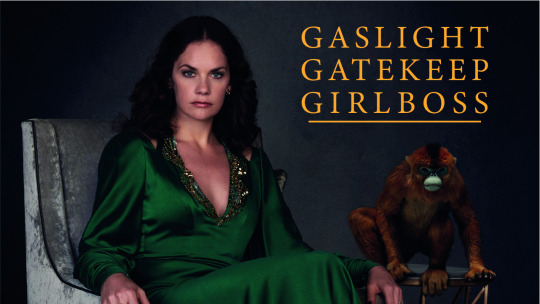
GASLIGHT
GATEKEEP
GIRLBOSS
#his dark materials#marisa coulter#gaslight gatekeep girlboss#it's her#it descibes her perfectly#golden compass#meme#please enjoy#i'm new to tumblr#twitter refugee#i used to love the books when i was a child and now i love the series
58 notes
·
View notes
Text
when I watch his dark materials the show then the movie and see Nicole Kidman and Ruth Wilson playing Marisa Coulter I end up shipping Marisa with herself
14 notes
·
View notes